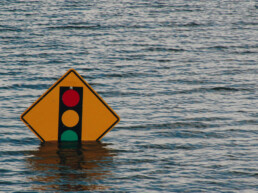Modern urban middle-class life affords us several comforts – piped water flowing in our taps and readily available food at the supermarket, shops, and at the local mama mboga’s kiosk. Regardless of shortages elsewhere, we can always depend on consistent supply for our own consumption. Or so it was. Today, the world is becoming increasingly precarious, and the same comforts that were once commonplace now come at premium prices.
The cause is partly to do with supply chain issues. Normally, merchants transverse long distances and cover large areas to acquire the goods they supply us with. The extra effort and transport distance increase the costs of supply and the price tag. If something is not locally available, merchants will cross the borders and get it for us.
If certain fruits are not in season, merchants will get the fruits from where they’re in season and bring them to us. Oh, we’re unable to produce enough bananas, mung beans, or peas locally? Worry not, the merchants will source them from across the ocean, if need be.
When the drought affects the crops on the farms, and harvests fail, most of us might not even know of it, because our favorite foods can still be found on the shelves of our shops and in our markets. We enjoy eating these commodities, regardless of supply conditions. When there are changes in the source or quantities available, we barely notice. After all, a merchant somewhere will go the extra mile to meet the need.
If the borehole closest to my home dries up, the owners of the water bowsers will go as far as it takes to source it for us. And so, when that borehole that is close to my home dries up, we pay no attention to it. Another one will be drilled. This time, deeper than before. Our needs will be met at all costs. That’s our life. Isn’t it?
One major consequence of such a relationship with our food and water is that we have become increasingly disconnected from the sources of the things we consume. It is now a race for mindless consumption, where we must get what we want at whatever cost or else!
“I pay for it.” “I am keeping someone employed/in business.”
True. But at what cost?
World Water Day
Today on World Water Day, whose theme is aptly “Be the Change,” I want to challenge you and you, all of us, to know where the things we consume come from – water and food especially.
To start you off, here is how you can start today:
-
Ask the vendor
Whenever you go shopping, ask the vendor, “Where is this from?” If at the Mama Mboga, they will probably tell you from which aggregating market (Marikiti) they sourced the product. If at an open-air market, they might know which area, including outside the country, the products come from. The butcher will know where the meat came from, the poultry seller will know where they got the eggs from.
And it is interesting – the kinds of things you begin to notice. For example, did you know that the stocks of ginger we have are imported from both Tanzania and Uganda. Why do we need both? And did you know that the pineapples from Kampala are the sweetest. Why is this?
-
Talk to your caretaker/landlord
Ask the landlord or apartment caretaker, where the water flowing in your taps comes from. Is it from a borehole? Which one? Close to you or farther away? If water is from the river, which one? What is the current state of that river? Are you regularly engaged in clean-up exercises? Have you ever engaged your area representative on the status of the river? Do you know if there are factories or agricultural practices upstream?
-
The garbage and household waste
Where does the wastewater that leaves your kitchen/bathroom go? Is it connected to municipal sewerage pipes? Does your apartment have a cesspool? Where is it located? Does it need to be drained regularly? Where do they dispose of the waste after? If you own your house, do you have a septic tank or cesspool? What do you do with the waste?
What about other household waste? Is it picked up from your house every week? To which landfill does it end up? Dandora? Or another dumpsite? Is it sorted before arriving there? Where? Who are the people who might be involved in scavenging useful items from your house waste? Do you compost?
Be the Change!
Asking the questions above brings you one step closer to understanding our footprints in the world. How our needs and wants affect others and the environment. The processes behind how our water and food are supplied to us. How our waste affects the people and environment around us.
I hope you have fun discovering the answers to these questions and that you learn new things on this new journey you have started as an informed member of the human race.
Be the Change!
Wakilisha Staff
Our mission is simple: to uplift and safeguard African culture, with all its diversity, for generations to come. We celebrate our heritage and ensure its enduring legacy through in-depth coverage of the happenings across the continent, engaging initiatives, and collaboration with other African cultural practitioners.




